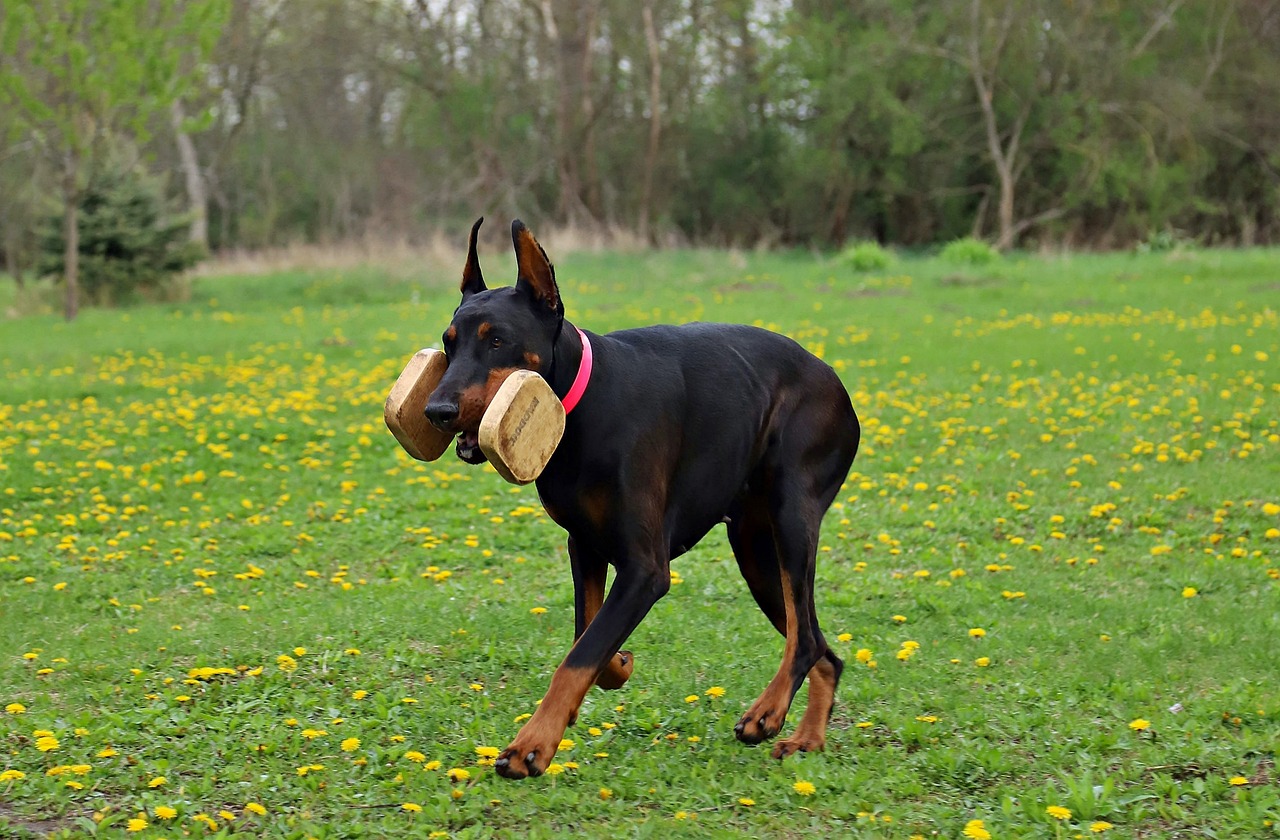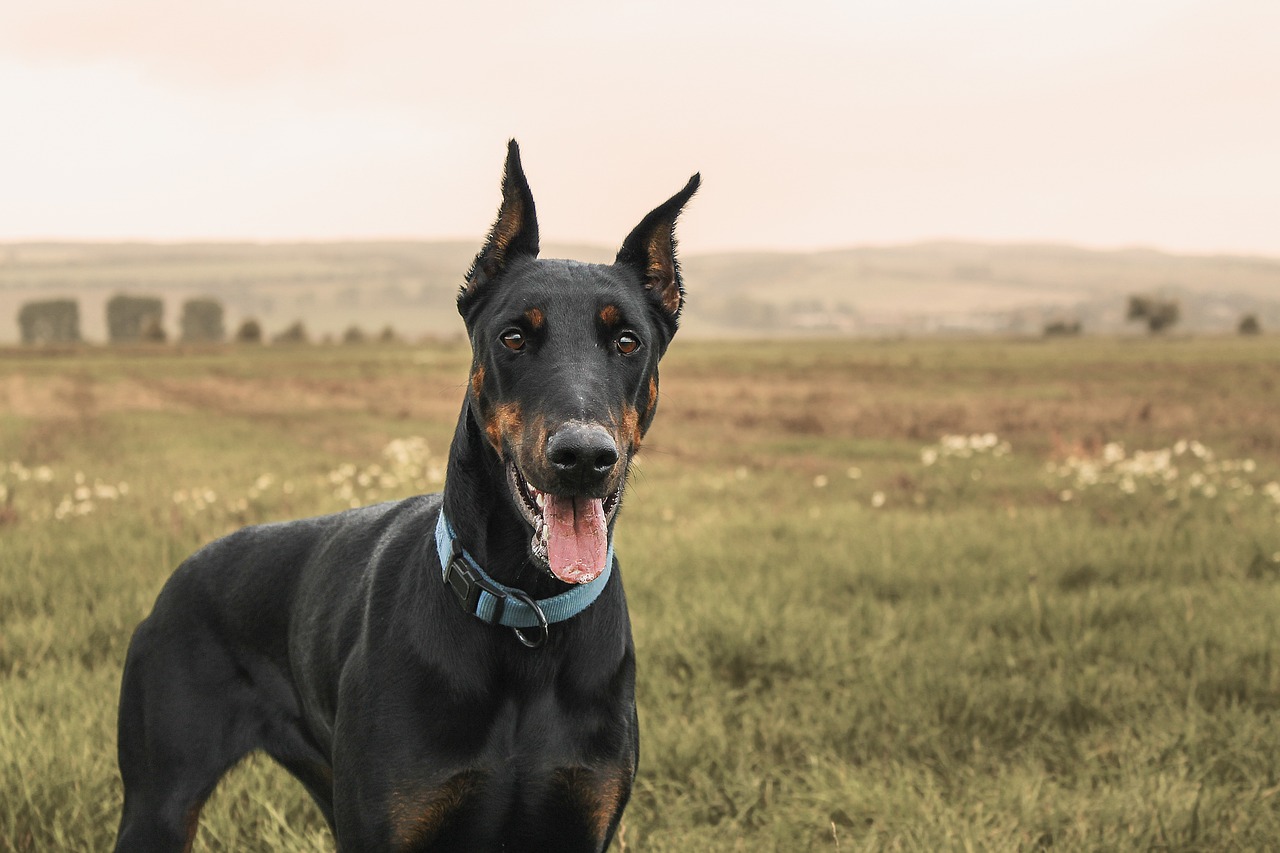Pets
What’s The Chunk Pressure of a Doberman & Does It Damage?
The Doberman, a breed recognized for its agility, intelligence, and loyalty, is commonly seen as a protector and household guardian. Whereas they don’t seem to be naturally aggressive with out motive, their chunk is one thing to be revered. Let’s delve into understanding the chunk drive of a Doberman and whether or not it may possibly trigger vital ache.
Doberman Chunk Pressure: How Sturdy Is It?
Relating to measuring chunk drive, scientists typically use the unit PSI (kilos per sq. inch) to find out how a lot strain an animal can exert. For the Doberman, the chunk drive is estimated to be round 245 to 305 PSI. To place this in perspective, the common human chunk drive is roughly 120 PSI. So, the Doberman’s chunk is considerably stronger than a human’s, however how does it stack up towards different canines? Whereas it’s not the strongest chunk drive within the canine world (with breeds just like the Mastiff and Rottweiler surpassing it), it’s nonetheless within the higher echelon of canine chunk energy.
Evaluating the Doberman’s Chunk to Different Breeds
Whereas the Doberman possesses a powerful chunk drive, it’s price noting that they don’t have the strongest chunk within the canine world. Breeds such because the Kangal, Mastiff, and Rottweiler have reported increased PSI readings. Nevertheless, the Doberman nonetheless ranks among the many stronger-biting breeds, making their chunk one thing to be revered.
The Ache Issue: Does a Doberman’s Chunk Damage?
In a phrase: Sure. A Doberman’s chunk may be excruciating. Given the energy behind their jaws and the sharpness of their enamel, a chunk from a Doberman has the potential to trigger vital harm. That is very true if the canine bites and holds or bites a number of instances. The ache isn’t simply as a result of drive, but additionally the potential for tearing, bruising, and even bone fractures in excessive instances.
Why Would a Doberman Chunk?
Like all canines, Dobermans don’t chunk with out motive. Frequent triggers would possibly embrace worry, safety of territory or relations, ache, or a perceived menace. Moreover, if a Doberman isn’t correctly socialized or educated, it’d use biting as a solution to talk or assert dominance.
Coaching and Socialization: Minimizing the Danger
The most effective methods to make sure your Doberman doesn’t resort to biting is to spend money on correct coaching and socialization from a younger age. Expose your Doberman to totally different environments, individuals, and animals, reinforcing constructive habits. Coaching lessons can even present steering on command reinforcement and dealing with potential aggression.
What to Do If a Doberman Bites?
If a Doberman does chunk, it’s important to method the state of affairs with care. First, make sure the sufferer will get the required medical consideration. Within the case of a extreme chunk, search emergency care. After addressing the instant issues, it’s very important to evaluate why the Doberman bit within the first place. Working with knowledgeable canine coach or behaviorist may be helpful in stopping future incidents.
Conclusion
The Doberman’s chunk drive is undoubtedly robust and might trigger vital ache. Nevertheless, with correct coaching, socialization, and understanding, the chance of a Doberman biting may be minimized. As with all breeds, it’s important to deal with the Doberman with respect, understanding their cues, and offering a loving setting by which they’ll thrive. By doing so, the bond between proprietor and Doberman is usually a secure and enduring one.
Regularly Requested Questions About Doberman Bites
1. Why do Dobermans have a popularity for biting?
Dobermans have been initially bred to be safety canines, which implies they’ve a pure intuition to protect and defend. This protecting nature, mixed with their robust chunk drive, has contributed to their popularity. Nevertheless, with correct coaching and socialization, Dobermans may be affectionate and well-behaved companions.
2. Are Dobermans naturally aggressive?
No, Dobermans usually are not naturally aggressive with out motive. Like several breed, their habits is commonly a product of their upbringing, coaching, and socialization. A well-trained and socialized Doberman is usually loyal, clever, and loving.
3. How can I scale back the chance of my Doberman biting?
Investing in early coaching and constant socialization is vital. Exposing your Doberman to numerous environments, individuals, and different animals whereas reinforcing constructive behaviors can considerably scale back the chance. Moreover, understanding and addressing their wants and triggers can additional decrease aggressive tendencies.
4. What ought to I do if my Doberman exhibits indicators of aggression?
It’s important to stay calm and to not react aggressively. Seek the advice of knowledgeable canine coach or behaviorist who can present steering on managing and redirecting aggressive habits. Guaranteeing your canine feels secure and addressing underlying causes of aggression is essential.
5. How robust is a Doberman’s chunk in comparison with different canine breeds?
A Doberman’s chunk drive is estimated to be between 245 to 305 PSI, making it one of many stronger bites amongst canine breeds. Nevertheless, breeds just like the Mastiff and Kangal have a better chunk drive.
6. Can a Doberman chunk trigger extreme damage?
Sure, given the energy of their chunk and the sharpness of their enamel, a Doberman’s chunk has the potential to trigger vital damage, starting from puncture wounds to extra extreme harm in the event that they chunk and maintain or chunk repeatedly.
7. Is it widespread for Dobermans to chunk their homeowners?
It’s not widespread for a well-socialized and educated Doberman to chunk its proprietor and not using a motive. Usually, they’re loyal and protecting of their households. Nevertheless, in the event that they really feel threatened or provoked, they could react defensively.
8. How do I introduce my Doberman to strangers to stop biting?
Introduce your Doberman to strangers in a managed setting. Let the canine method the stranger at their very own tempo and permit them to smell. Utilizing treats and constructive reinforcement throughout introductions can even create a constructive affiliation.
9. Are Dobermans extra vulnerable to chunk as puppies?
Like all puppies, Dobermans might nip or chunk throughout play or when teething. It’s important to show chunk inhibition from a younger age and redirect biting habits to acceptable toys or chewables.
10. Are sure Doberman traces extra aggressive than others?
Whereas particular person temperament can differ, the canine’s setting, upbringing, coaching, and socialization play a extra vital position in habits than lineage alone. It’s at all times advisable to analysis breeders and lineage if contemplating adopting a Doberman pet.


